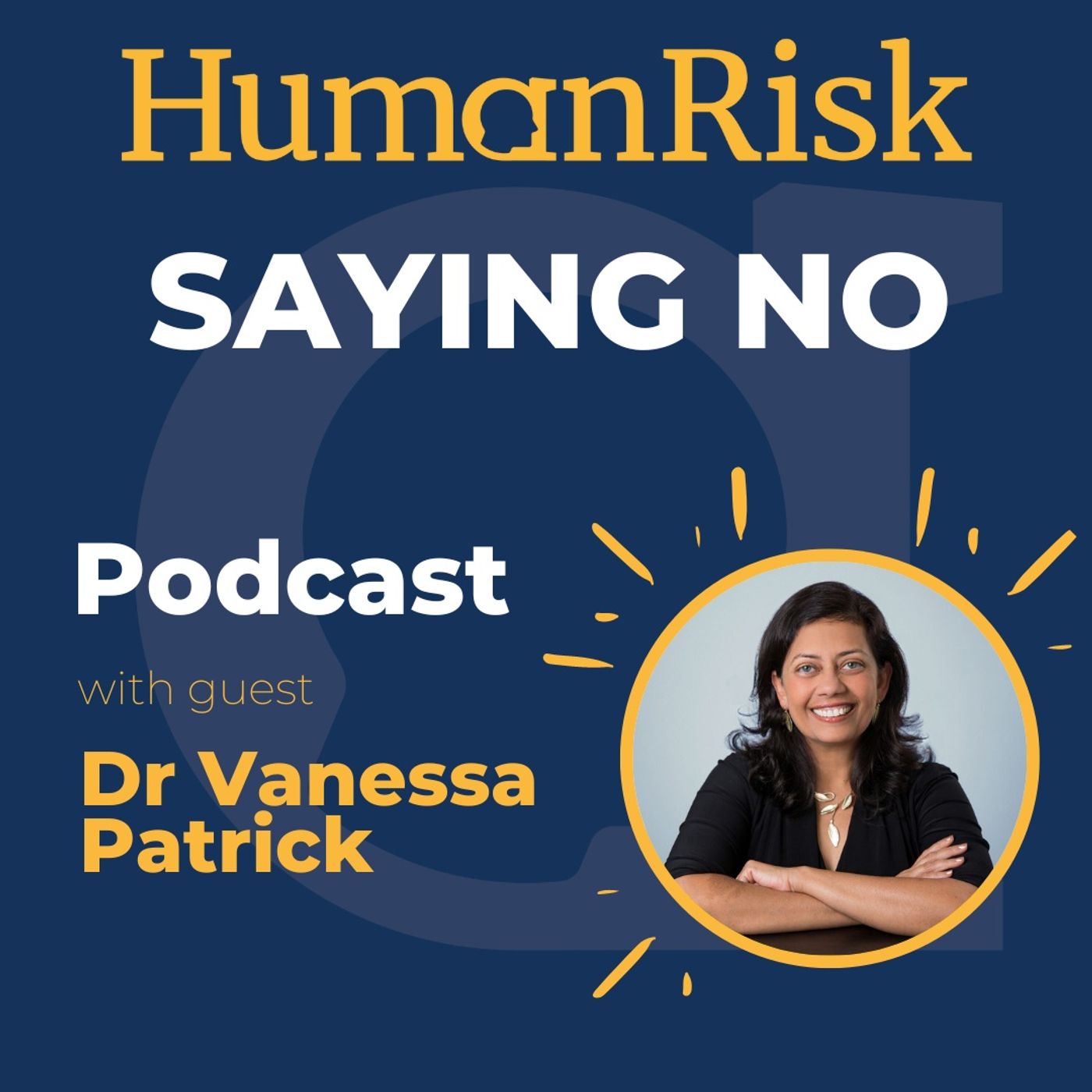Dr Vanessa Patrick on the Power of Saying 'No'

Why does a two-letter word ('no') often cause us huge amounts of problems? After all, it's easy to say… except when it isn’t. We’ve all found ourselves in situations where we’ve wanted to say 'no' but, for some reason, haven’t been able to do so....
Why does a two-letter word ('no') often cause us huge amounts of problems? After all, it's easy to say… except when it isn’t. We’ve all found ourselves in situations where we’ve wanted to say 'no' but, for some reason, haven’t been able to do so.
From a human risk perspective, it's not hard to see how finding it hard to say 'no', can crystallise human risk; it can lead to people doing things they aren’t qualified to do, don’t feel morally right about doing or simply don’t want to.
So, how can we put as much emphasis on ‘just say no’ as ‘yes we can’?
The answer comes courtesy of my guest Dr Vanessa Patrick who has just published a book called 'The Power of Saying No: The New Science of How to Say No that Puts You in Charge of Your Life'
Vanessa is the Associate Dean for Research, Executive Director of Doctoral Programs (PhD and DBA), a Bauer Professor of Marketing and lead faculty of the Executive Women in Leadership Program at the Bauer School of Business at the University of Houston.
In our dsiucssion, Vanessa explains the concept of 'empowered refusal', a skill that helps us say no in a way that does not invite pushback from others. She also highlightst why saying no is difficult because society expects us to say yes. Three factors that affect our ability to say no are concern for relationships, concern for reputation, and lack of practice in saying no.
Key points from our discussion:
- Why the ability to say no is a skill worth developing and can be done by identifying what matters to us and what is a good use of our time;
- How good work is excellent, engaging, and ethical, and we should focus on tasks that fall within this framework;
- Vanessa refers to difficult people who refuse to take no for an answer as Walnut Trees; hear why and how we can develop strategies to handle them;
- Surrounding ourselves with positive and nurturing people, or what Vanessa calls marigolds, is important for our well-being; and
- Recognizing and managing our interactions with others can help us prioritize our time and focus on relationships that bring us joy.
https://www.vanessapatrick.net/
Listeners too young to know what a fax machine is, can find out here: https://en.wikipedia.org/wiki/Fax
For more on my book 'Humanizing Rules: Bringing Behavioural Science to Ethics & Compliance' and to read the first few chapters for free visit www.humanizingrules.com
To hear previous episodes you might have missed visit www.humanriskpodcast.com



















